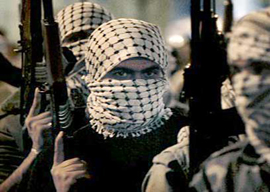
October 02, 2012

Three days after Ambassador Chris Stevens was assassinated, Jay Carney told the White House press corps it had been the work of a flash mob inflamed by an insulting video about the Prophet Muhammad.
As the killers had arrived with rocket-propelled grenades and automatic weapons, this story seemed noncredible on its face.
Yet two days later, U.N. Ambassador Susan Rice doubled down. Appearing on five Sunday talk shows, she called the massacre the result of a “spontaneous” riot that was neither “preplanned” nor “premeditated.”
Carney and Rice deceived us. But were they deceived?
It is impossible to believe that Carney would characterize the Benghazi, Libya, massacre as the result of a protest that careened out of control unless he had been told to do so by the national security adviser, the White House chief of staff or President Barack Obama himself.
Who told Carney to say what he did? Who arranged for Rice to appear on five shows to push this line?
Throwing a rope to Rice and Carney, the director of national intelligence, James Clapper, said last week that only recently had his team concluded that Benghazi was the work of terrorists.
Yet intelligence insiders were leaking to the press the day after Stevens was murdered that it was terrorism.
Now that the cover story—that the murder of Stevens and the other Americans was the result of a spontaneous outburst the Obama administration could not have foreseen or prevented—has collapsed, the truth is tumbling out.
And the truth is more alarming. For it calls into question the credibility and competence of Obama’s security team and the judgment of the president himself.
What do we now know?
Stevens believed he was on an al-Qaida hit list and so wrote in his diary. He was concerned about a rise in Islamic extremism in the city. “Days before the ambassador arrived from the embassy in Tripoli,” The Washington Post reported Sunday, “Westerners had fled the city, and the British had closed their consulate.”
Rice insisted that the act of barbarism arose out of a protest, but there may not even have been a protest, just a military assault with RPGs, machine guns and mortars that hit a safe house a mile from the consulate, killing two former Navy SEALs, while other U.S. agents fled to the airport.
So dangerous is Benghazi, The New York Times reported Friday, FBI agents investigating the ambassador’s assassination have yet to venture into the city.
Was U.S. intelligence oblivious to how dangerous Benghazi was when Stevens went in? Was not Benghazi’s reputation as a haven for Islamic jihadi known to us all before we “liberated” Libya?